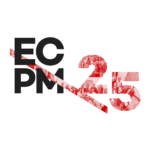As Lebanon has just celebrated, on 20 January, 17 years of moratorium on executions, ECPM and its partners are publishing an exclusive fact-finding mission to Lebanon’s death rows. “Alive, without being”, written by Carole Berrih and Karim El Mufti, puts into perspective the numerous testimonies gathered by the investigators in relation to the historical, legal and political context of the country in order to question public opinion and engage in dialogue with the authorities.
This report was produced in partnership with the AJEM (Association Justice et Miséricorde) and the LACR (Lebanese Association for Civil Rights). It is the result of a survey carried out in Lebanon from June to September 2018 by social workers, jurists and lawyers working with the AJEM. It is based on interviews with 53 prisoners on death row, including four women in four prisons, but also with family members, fellow prisoners, prison officers, magistrates, lawyers and former prisoners on death row. The anonymity of the prisoners interviewed was preserved.
The LACR largely contributed with its expertise to the production of this report. Carole Berrih, Director of Synergies Coopération and editor of this report, and her co-editor Karim El Mufti have very rightly taken up the testimonies collected by the investigators to integrate them into a historical, legal and political analysis of the application of the death penalty in Lebanon.
This report is part of ECPM’s “Fact-finding missions on death row” collection, which takes stock of living conditions on death row in different countries around the world. The aim is to report on the reality of the application of the death penalty, to question public opinion and support advocacy with national authorities and the international community.
Click to download the fact-finding mission

You will find in this fact-finding mission :
- An analysis of the history of the death penalty in the country
- The main stages of the criminal procedure and the clemency procedure
- An investigation into the conditions of detention of those sentenced to death
- Testimonies from families of those sentenced to death
- Information on the abolitionist movement in Lebanon
- Recommendations addressed to the Lebanese State, civil society and regional and international cooperation actors
Extracts :
” I’ve already died a million times. ” Bilal, sentenced to death for murder in 1997, held in Roumieh prison.
” We can see the uncertainty in which those condemned to death. We don’t apply the death penalty, but we don’t cancel it either. Are we going to wake them up one day and tell them that the sentence is going to be carried out? That is the most horrible thing to live through. It gives rise to anxiety, depressive symptoms, stress that is sometimes uncontrollable. They are alive, without being being. ” Psychologist working in prison.

Roumieh Central Prison ©Haitham Moussaw
REMINDER OF THE FACTS
Lebanon has implemented a de facto moratorium since 2004, but Lebanese courts continue to hand down death sentences. Detention conditions are startling in the country with the highest prison occupancy rate in the Middle East (236% in 2019). In Lebanon, the number of persons sentenced to death is not published by the authorities, and access to prisons (administered by the Ministry of the Interior and the Ministry of National Defence) remains very limited.
ECPM has been working for 10 years in Lebanon to support its local partners by promoting dialogue with the national authorities, supporting advocacy with regional and international human rights protection mechanisms, supporting the defence of those sentenced to death and advocating for the improvement of their conditions of detention.
Michaël Luzé, Relations Presse
luzemichael@yahoo.fr
Fact-finding mission carried out with :


